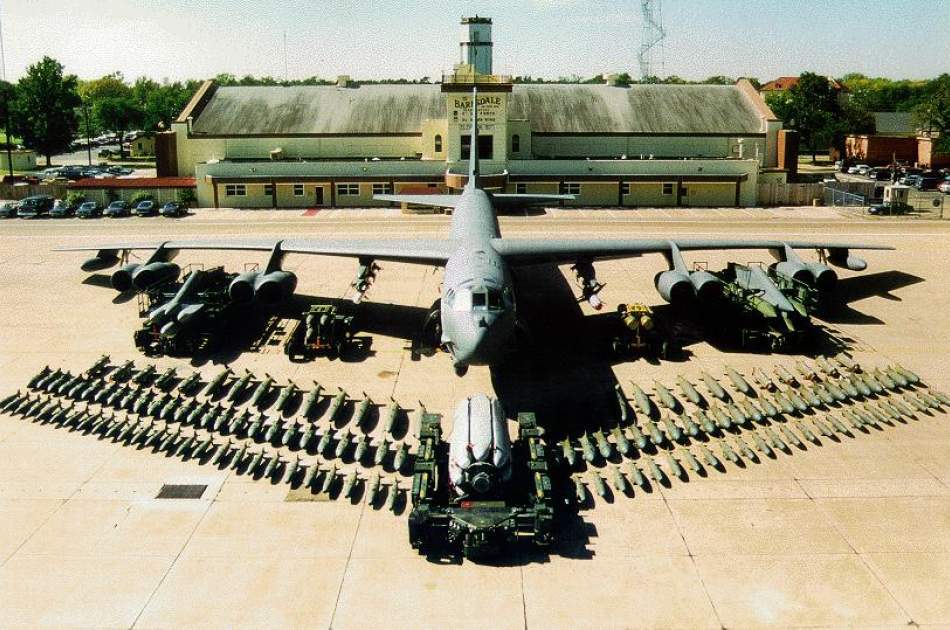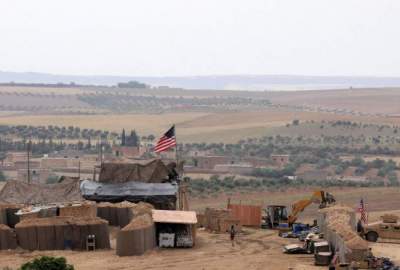Some media reports the deployment of American B-52 bombers in Australian air bases. According to most experts, this will increase the tension between this country and China.
Publish dateMonday 31 October 2022 - 15:46
Story Code : 260374
Afghan Voice Agency (AVA): The Guardian newspaper wrote in a report today: An Australian air force base in the north of the country has provided space for the deployment of 6 B-52 nuclear bombers as part of a project sponsored by the US, which is likely to increase tensions with China.
Canberra officials confirmed that number of bombers could be based at the aircraft parking lot at Tyndall Air Force Base, which they said could accommodate other aircraft.
The Australians have stated that the project is in the design phase, however US bombers have been flying to Australia since the early 1980s and have been training in Australia since 2005.
B-52s are heavy, long-range bombers that can conduct surveillance operations over the ocean as well as conduct anti-ship operations. These bombers are also capable of carrying nuclear and precision-guided munitions.
According to the report of the "Four Corner" website, the US Department of Defense has allocated a budget of 14.4 million dollars for the operation of the squadron and the maintenance of the facilities at the Tyndall base.
Referring to documents, this website reported that the project is required to support strategic operations and conduct 15-day training exercises for B-52 squadrons during the dry season in the Northern Territory of Australia.
Carolyn Kennedy, the American ambassador to Australia, while claiming that Washington supports peace and stability throughout the region through diplomacy, dialogue and deterrence, added that the Indo-Pacific region is facing increasing tensions and the United States is working with its partners and allies to establish security in this region. The region cooperates.
Scott Morrison, the former prime minister of Australia, revealed in September of last year that the US is increasing its military presence in the region; While Canberra is waiting for nuclear submarines under the "Akos" agreement.
The Chinese government has criticized the American position towards Taiwan (which Beijing hopes to eventually join the mainland) as undermining its sovereignty and territorial integrity and has announced that Washington wants to weaken Beijing's growing influence at the same time as it tries to overtake The United States is the largest economy in the world.
Tensions between the two superpowers have become more heated since the visit of US House of Representatives Speaker Nancy Pelosi to Taiwan in August and US President Joe Biden's remarks in May about his country's military defense of Taiwan in the event of a Chinese attack, although the White House later backed Biden's position.
In the current situation, the deployment of B-52 nuclear bombers in northern Australia and conducting surveillance operations in the vicinity of the Chinese-influenced area can heighten tensions between Beijing and Washington.
Canberra officials confirmed that number of bombers could be based at the aircraft parking lot at Tyndall Air Force Base, which they said could accommodate other aircraft.
The Australians have stated that the project is in the design phase, however US bombers have been flying to Australia since the early 1980s and have been training in Australia since 2005.
B-52s are heavy, long-range bombers that can conduct surveillance operations over the ocean as well as conduct anti-ship operations. These bombers are also capable of carrying nuclear and precision-guided munitions.
According to the report of the "Four Corner" website, the US Department of Defense has allocated a budget of 14.4 million dollars for the operation of the squadron and the maintenance of the facilities at the Tyndall base.
Referring to documents, this website reported that the project is required to support strategic operations and conduct 15-day training exercises for B-52 squadrons during the dry season in the Northern Territory of Australia.
Carolyn Kennedy, the American ambassador to Australia, while claiming that Washington supports peace and stability throughout the region through diplomacy, dialogue and deterrence, added that the Indo-Pacific region is facing increasing tensions and the United States is working with its partners and allies to establish security in this region. The region cooperates.
Scott Morrison, the former prime minister of Australia, revealed in September of last year that the US is increasing its military presence in the region; While Canberra is waiting for nuclear submarines under the "Akos" agreement.
The Chinese government has criticized the American position towards Taiwan (which Beijing hopes to eventually join the mainland) as undermining its sovereignty and territorial integrity and has announced that Washington wants to weaken Beijing's growing influence at the same time as it tries to overtake The United States is the largest economy in the world.
Tensions between the two superpowers have become more heated since the visit of US House of Representatives Speaker Nancy Pelosi to Taiwan in August and US President Joe Biden's remarks in May about his country's military defense of Taiwan in the event of a Chinese attack, although the White House later backed Biden's position.
In the current situation, the deployment of B-52 nuclear bombers in northern Australia and conducting surveillance operations in the vicinity of the Chinese-influenced area can heighten tensions between Beijing and Washington.
avapress.net/vdcbzgb5arhb0fp.4eur.html
Tags
Top hits








